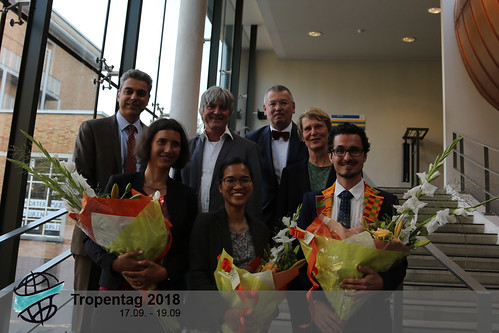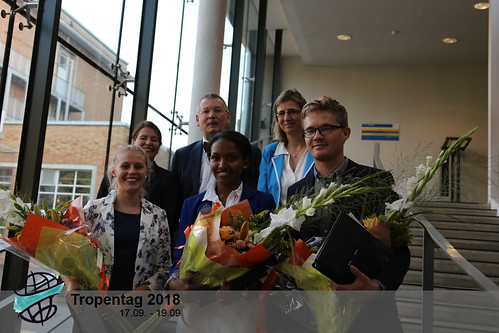People 2018

A Hero
Tue, 09/18/2018 - 19:59 — agyeiIn attendance of this year's Tropentag is the oldest among all other participants, Dr. Rainer Zachmann, a retired German phytopathologist. Earlier on in his research life, he worked for the CIP from the years 1973-1989. With his passion for developing countries, he worked for IITA also as a phytopathologist from 1989 to where he was mobile throughout sub-Saharan African countries including Nigeria, Ghana, Togo, Benin, among others.
Dr. Zachmann did not only work as a researcher in Africa but also availed himself as a trainer on all aspects of most valuable food crops in Africa such as maize, cassava, and yam. During this time, he developed research tours and conducted several workshops with the aim of improving agriculture in Africa. Dr. Zachmann spent close to a decade in Ibadan, Nigeria and due to his friendly manner he was fully integrated in his Nigerian community in Ibadan where he was named "Akinkanju" which literally means "warrior".
During the oral presentation sessions earlier today at the AUD E2, Dr. Zachmann was the fifth to give a presentation. It was obvious that the audience were tired and bored already. In the quest to revive the tired audience, Dr. Zachmann greeted the audience in four different languages which then sparked inspiration in the audience. This indeed justified that there is a true hero in the house.
Stand Up (for the champions!) – Part 2
Mon, 09/17/2018 - 21:55 — Onu EkpaOne striking quote from Denise’s presentation was presumably from Albert Einstein – which says that "if bees disappear from the earth, humans would be extinct within 4 years". Though this quote is definitely not from Einstein, it carries equal weight as Einstein – the greatest scientist ever! This same level of importance of bees drives Denise’s life-saving mission. In pursuing her passion, she systematically integrated indigenous groups and honey bees, thereby improving the livelihood of the people and promoting conservation agriculture.
Stand Up (for the champions!) - Part 1
Mon, 09/17/2018 - 20:08 — Onu EkpaAnd this year Hans Hartwig Ruthenberg Graduate Award goes to …. Beatrice Nöldeke, Bezawit Adugna Bahru and Lutz-Heiner. Beatrice from Leibniz University of Hanover conducted a research in Zambia on “Gender-Specific Aspects of Transforming Fish Value Chains in Zambia”. She found that better food security can be guaranteed by empowering females in fish value chains. The second recipient, Bezawit from University of Hohenheim researched “Climatic shocks and child undernutrition in Ethiopia: a longitudinal path analysis’’. She observed that program targeted at climate affected areas have a positive effect on the livelihood and nutrition of households especially the children.






